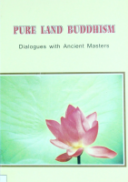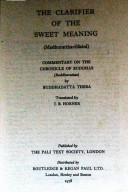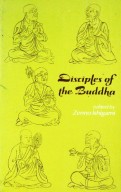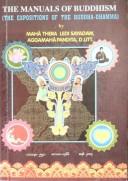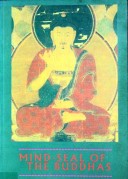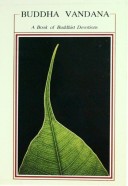Tìm Sách
Sách tiếng Anh-English >> Pure Land Buddhism Dialogues with ancient Masters
Thông tin tra cứu
- Tên sách : Pure Land Buddhism Dialogues with ancient Masters
- Tác giả : Patriarch Chih I, T'ien Ju
- Dịch giả :
- Ngôn ngữ : Anh
- Số trang : 212
- Nhà xuất bản : The Corporate Body of the Buddha Education Foundation
- Năm xuất bản : 1992
- Phân loại : Sách tiếng Anh-English
- MCB : 1210000007223
- OPAC :
- Tóm tắt :
Introduction
The Pure Land School
Zen, T’ien T’ai and Pure Land are among the best known schools of Buddhism in East Asia. Pure Land, in particular, has the widest appeal. However, unlike Zen and the Tantric School, which have many exponents in the West, Pure Land is little known to westerners, except, perhaps, in scholarly circles.
This book presents the teachings and major tenets of Pure Land, as seen from the perspective of two major sister schools: Zen and T’ien T’ai (Lotus School). Further insights, from the viewpoint of a contemporary Pure Land Master, are included in the Appendix. The principal teachings of the Pure Land School are summarized below, for the benefit of readers.
The goal espoused by all Buddhist schools is for the practitioner to achieve Buddhahood, i.e., to become an “Enlightened Being.” Thus, to practice Buddhism is to cultivate enlightenment, to attain Wisdom. Although there are many paths to reach this goal, they all involve severing greed, anger and delusion, thus perfecting the qualities of the Mind (“paramitas”). Traditionally, Buddhist sutras enumerate six or ten paramitas, but they may be reduced to three: Discipline, Concentration and Wisdom (the second, fifth and sixth paramitas, respectively).
Pure Land, or Buddha Recitation, is a Mahayana approach that employs, inter alia, the techniques of meditation / visualization (of the Pure Land, Amitabha Buddha …) and of oral recitation of the Buddha’s name, to realize these paramitas.
That is, when a practitioner is busy visualizing the Buddha or reciting the Buddha’s name, he cannot commit transgressions or violate the Buddhist precepts. Therefore, he has effectively fulfilled the paramita of Discipline. Likewise, reciting the Buddha’s name with a completely focussed Mind is nothing less than fulfilling the paramita of Concentration. Once Concentration is achieved, the practitioner’s Mind becomes empty and still, leading to the emergence of his innate wisdom — the Wisdom of the Buddhas.
Contents
* Preface
Introduction: Pure Land School
Note on the Text
Translations:
Part I: Tien Tai Patriarch Chih I
Ten Doubts about Pure Land
Part II: Elder Zen Master Tien Ju
Doubts and Questions about Pure Land
Part III. Appendix: Master T.Thiền Tâm
Buddhism of Wisdom and Faith (excerpts)
- Doubts on Misreading the Sutras
- Caveats: Demons of the Mind
Editors’ Notes
Editors’ Glossary
Bibliography
Index
 Facebook
Facebook
 Google
Google
 Google+
Google+
